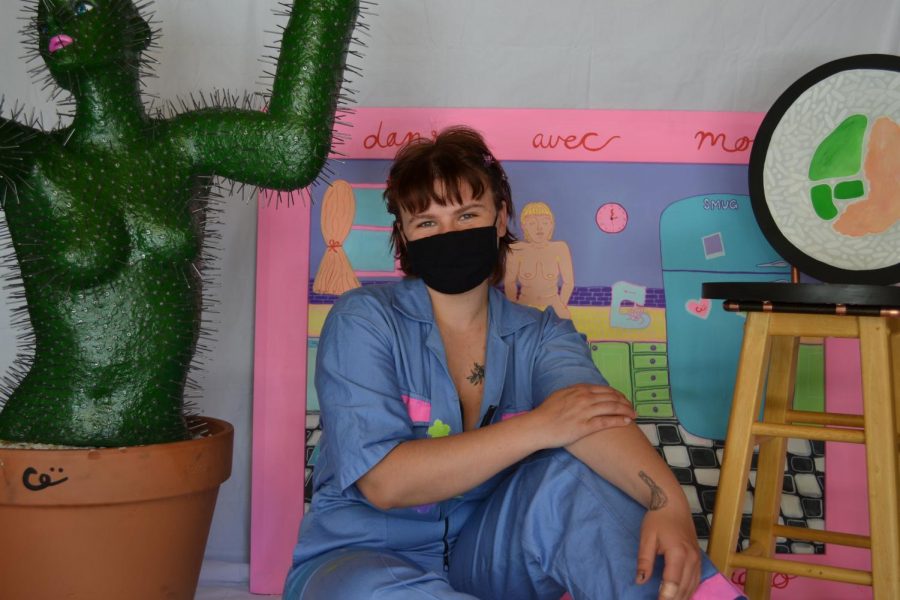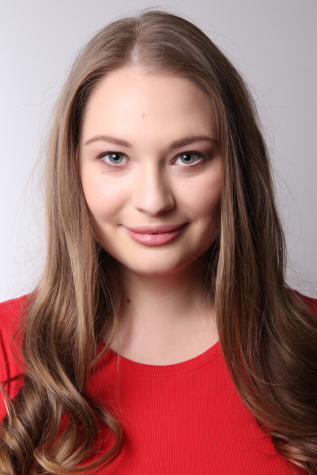In 2019, Sydney Gittins, an SRJC student, was set on transferring to UCSD in Fall to study marine biology. All her plans changed in March 2020, when the World Health Organization announced that COVID-19 was a global pandemic.
The pandemic gave her time to think about what is important to her, and she realized how much she values learning and reflecting on life. She found that this coincides more with her passion for art and thus, decided to switch her major. Now, Gittins is majoring in art at SRJC with plans to transfer to UCSC in the fall.
College students in 2019 were soaking in as much information as possible in class, interning for their dream companies and trying to earn pocket money on the side. They could see their dreams hovering over the horizon, one all-nighter at a time. Now, their classes are online, internships are virtual or non-existent and their pockets are empty. Their dreams are still very much there in the distance, but how do they keep them in sight?
Now, students such as Juliane Magarino, a recent transfer to Oregon State majoring in biology; Sydney Gittins, an SRJC art major; and Sophia Barri-Rorrick, a former SRJC student in her final year at Sonoma State’s School of Education, are pursuing their dreams during a pandemic.
To continue working toward their goals, they have geared their attention toward school. Since it is hard to make connections in their designated fields, they make up for it by putting extra time into school work, Magarino said.
“School is the one constant that can help me achieve my goals, even if it is online,” Barri-Rorrick said.
Annette Thiessen, a registered nurse who works and trains nursing students at Sutter Medical Center, said her students have been incredibly motivated lately and tend to not let COVID-19 damper their goals. They take their job seriously by taking the precautions of wearing masks, gloves and constantly washing their hands.
Gittins is not only putting energy into her school work, but also into building her art portfolio. COVID-19 has provided her with more free time, so she has been able to work more on her artwork than ever before and has been inspired by the current state of the world.
“Thankfully, as an artist I can do a lot right now and it’s a very influential time for artists to come out,” she said. “I feel like there is always some type of art revolution whenever big things in history happen and as an artist I’m glad I get to live through one.”
Gittins is a planner so playing life by ear has been an adjustment for her.
“It’s like when you’re a little kid and you’re like ‘someday when I grow up I’m gonna do this’ that’s how it feels planning stuff right now cause I literally don’t know when things are gonna happen,” Gittins said.
Although students are doing the best they can to achieve their goals, their tracks are very different now than they were before. Barri-Rorrick, a former SRJC student in her final year at Sonoma State University’s School of Education, is working towards applying for a teaching credential program. However, it requires students to complete volunteer hours prior to enrolling. Since teachers had to shift their teaching strategy to align with Zoom, it was difficult to find a teacher who wanted an apprentice when they were dealing with their own struggles. Luckily, the teaching program waived the volunteer hours due to the unforeseen circumstances.
Other teaching program requirements have been postponed. The test Barri-Rorrick must take to receive her teaching credential was postponed a year. She keeps a positive mindset and is using that time to study.
Magarino, a recent transfer to Oregon State and an aspiring veterinarian, had made plans to work with a traveling veterinarian over the summer, but all their scheduled events were canceled. She adapted her plans and was able to continue working for a vet’s office throughout the pandemic until she transferred to Oregon State last fall.
“I feel like figuring out my life is different now because everything is so unexpected and we don’t know what’s gonna happen anytime soon,” Magarino said.
She is trying to use this time to prepare for her future by thinking about her goals for after the pandemic. So, Magarino is trying to gain experience where she can so that she is able to travel around Europe and volunteer short-term at zoos and sanctuaries when it is safe to travel.
Gittins dreams of traveling to Europe to earn her master’s degree in either London or Paris. She is trying to learn more classical art skills to give her the best chance possible of getting into a European art school since the school she is interested in is big on classical art.
Barri-Rorrick hopes to take her teaching credential program exam in person when the pandemic ends. That hands-on experience is invaluable and she hopes to get the opportunity to gain more “real world” experience before becoming a teacher.
Theissen said that students are thirsty for all the hands-on experience they can get, especially in today’s climate. The extra challenge of COVID-19 has pushed the students and they all “flock” around her whenever anyone asks a question because they are eager to learn.
“It is different doing the job in real life compared to reading about it in a textbook, because nurses must make important decisions in, sometimes, a short amount of time,” Thiessen said.
Until COVID-19 is over, students must persevere and remember that hard work put in now will pay off after the pandemic, Magarino said. If students give up now they might feel behind after the pandemic, a thought that keeps Barri-Rorrick motivated to work towards her goals now and stay on track.
Magarino advises students to “check in” with themselves to ensure their mental health is in a good place.
“These are absolutely crazy times and nobody should be too hard on themselves right now. Everything is up in the air so taking a step back can really help,” she said.
Gittins has found motivation through friends and family who keep her accountable for her tasks and help her when needed.
“It’s OK if all people can do is survive right now and try to just get through the day because everything is so much harder to accomplish during these times,” Gittins said.




